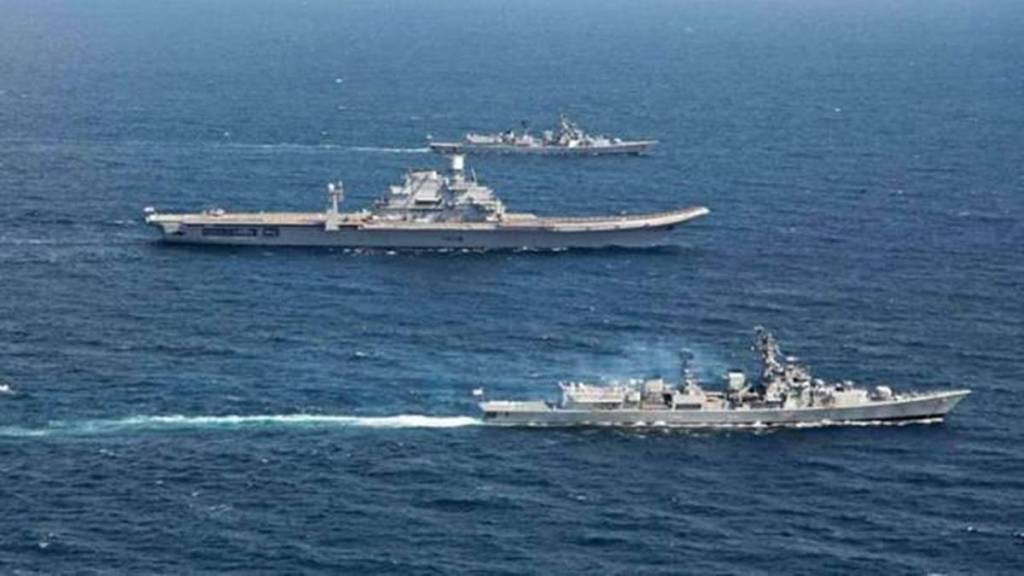In view of growing Chinese aggression in the region, for inclusive growth and global wellbeing India and Vietnam discuss ways to sustain a secure maritime environment.
At the 3rd India-Vietnam Maritime Security Dialogue held in New Delhi on May 31, according to an official statement issued by the Ministry of External Affairs, both sides reviewed the ongoing initiatives in the maritime domain. And for comprehensive maritime security the two countries focused on the avenues of reinforcing regional and international mechanisms.
According to the Ministry of External Affairs, India and Vietnam have agreed to further strengthen their efforts and existing frameworks in areas like maritime connectivity and maritime security, Navy and Coast Guard co-operation, maritime law enforcement, marine scientific research, Humanitarian Assistance and Disaster Relief (HADR), and capacity building. And the next round of the Dialogue will take place in Vietnam.
Importance of the Maritime Security Dialogue
China’s assertive actions in the South China Sea have raised concerns among neighboring countries and both India and Vietnam are affected by China’s territorial claims and activities. Maritime cooperation brings together the shared interests and objectives of India and Vietnam and contributes to regional stability, economic growth, energy security, and the safeguarding of maritime interests. And strengthens the strategic partnership between the two countries and supports their broader engagement in the Indo-Pacific region.
To counterbalance Chinese influence it is important for both India and Vietnam to collaborate as their cooperation will help to strengthen their positions and collective bargaining power in addressing disputes, promoting stability, and upholding international law.
According to maritime experts, “The two countries are located in the Indo-Pacific region which is witnessing increased geopolitical competition. Therefore the cooperation in the maritime domain helps maintain stability and security in the region, ensuring the freedom of navigation and promoting rules-based order.”
With the economic ties between the two countries going stronger and the bilateral growing, maritime cooperation not only enhances trade facilitation, and economic growth it also helps in connectivity, and maritime infrastructure development.
Maritime Domain Awareness
Collaborative efforts in maritime surveillance, intelligence sharing, and joint patrolling enable both countries to enhance their maritime domain awareness. This is important as it helps both sides in combating illicit activities including illegal fishing, territorial encroachments, or expansion of military presence.
Also it helps to counter common security threats like terrorism and piracy. Therefore, information sharing, joint exercises and capacity building efforts further enhance their ability to respond to such challenges and safeguarding maritime interests.
Energy Security
Cooperation in the maritime domain can lead to joint exploration and development of offshore energy resources, contributing to their energy security and reducing dependence on external sources.
Economic Connectivity
China’s Belt and Road Initiative (BRI) aims to enhance its connectivity and influence in the region. India and Vietnam can leverage their maritime cooperation to develop alternative economic corridors and connectivity projects, offering alternatives to the BRI. This can enhance regional economic integration, diversify trade routes, and reduce dependency on China’s infrastructure initiatives.
Who was present at the Maritime Security Dialogue?
While the Indian side was led by Ms Muanpuii Saiawi, Joint Secretary (Disarmament & International Security Affairs), Ministry of External Affairs and Ambassador Trinh Duc Hai, Vice Chairman, National Boundary Commission led the Vietnamese delegation. During the talks senior officials of respective services and ministries concerned with maritime affairs were present.


